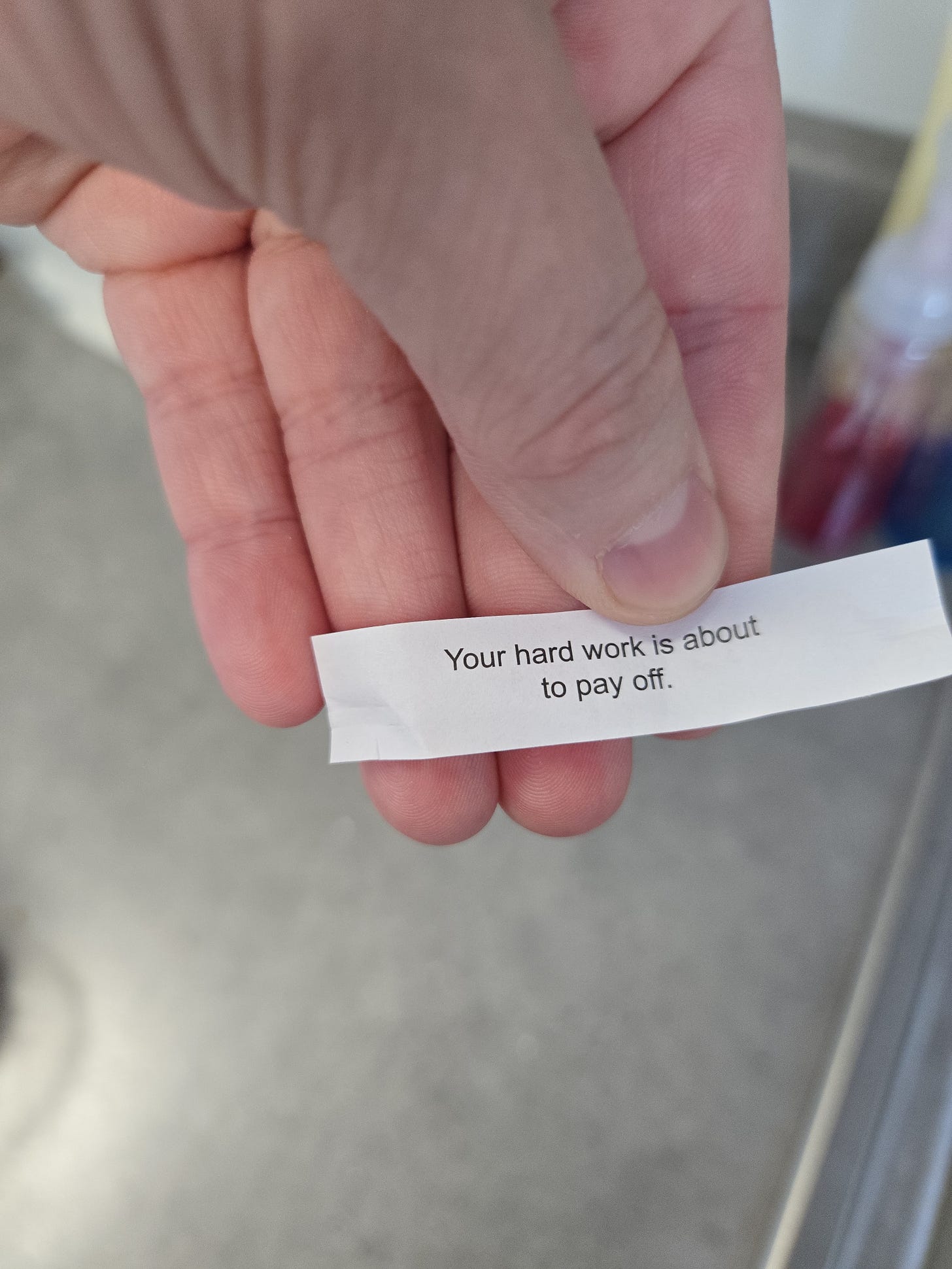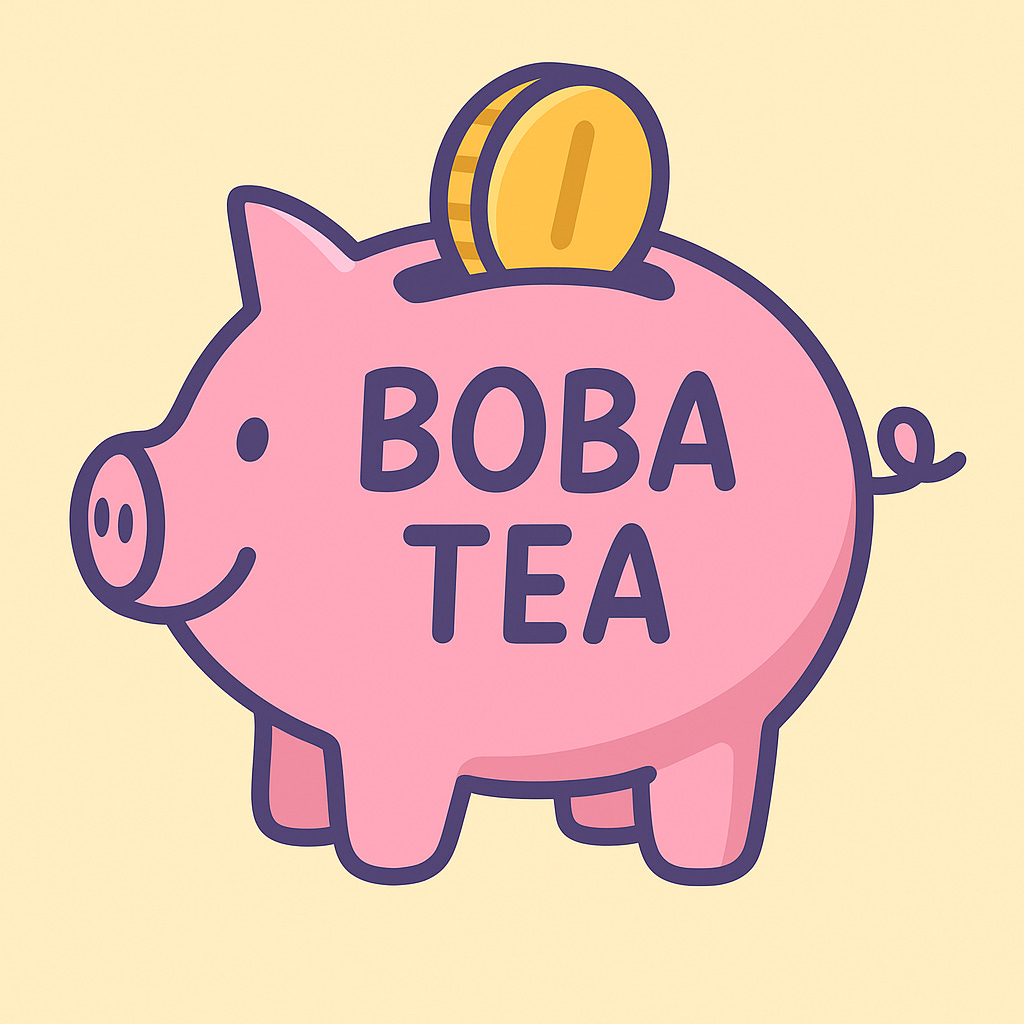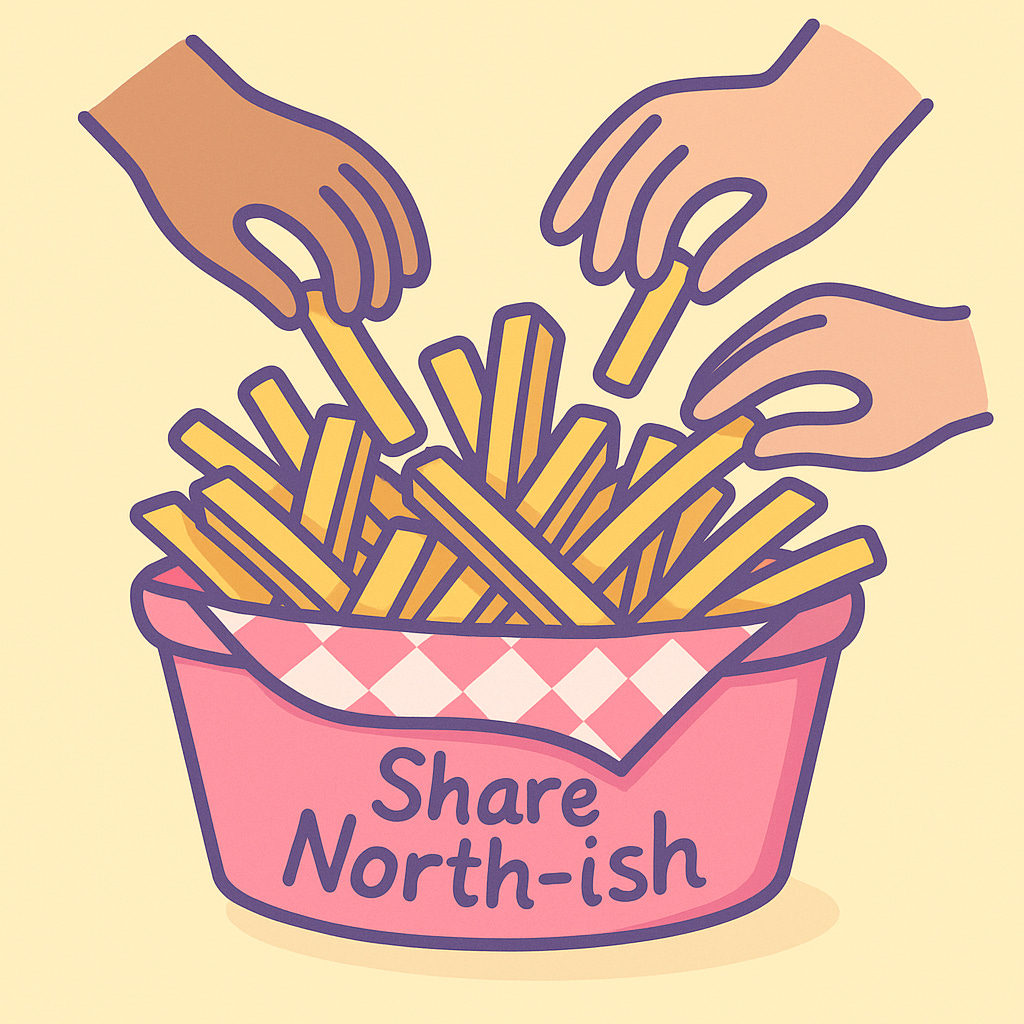I’ve been absent from writing for a few weeks now, and while I’m disappointed in myself for it, I’ve spent most of that time in a place of panic and limbo.
It has taken me my entire nursing career, seven and a half years, to find something that truly speaks to me. And suddenly, I was standing at an impossible crossroads. I’d become an integral part of a team I helped build, with patients I’d grown to love. I knew their faces, their stories. It’s hard not to get attached when you’ve seen some of them every single week for six months straight, or spent shifts with coworkers who fill even the hardest days with laughter.
I’d helped carry that practice through moments others struggled to survive. I’d designed systems that were more effective and found creative solutions when resources ran thin. People relied on me. I thought that kind of dedication would be met with celebration. It wasn’t. The practice started to feel like quicksand; I needed out before I suffocated.
My eyes became glued to Gmail, constantly hitting refresh. Checking application portals became both my morning and nightly ritual.
A couple of weeks passed. Then came an interview. Then a second. Then a shadow. I told myself not to get too hopeful; there’s nothing worse than getting excited only to be let down.
Still, I felt this forceful pull. I decided to put in my two weeks. My future was unclear, but I clung to a faint glimpse of hope as I waited for the offer.
In the meantime, my head spun as I crunched numbers: how long I could afford insulin and glucose sensors without coverage, what I’d do if my supplies ran out before a new job started. There was always Cobra if needed, but I’d rather not blast through my savings like that. I spent a full day off calling pharmacies to see who could fill my diabetes supplies, because as luck would have it, there was a manufacturer shortage. That’s the kind of thing healthy people don’t have to think about.
So while it felt good to have people believe in me, telling me they had no doubt I’d get the job, I spent many days fearful of how I’d manage my chronic illnesses. You might wonder why I’d put myself in that position, but something inside me, something inexplicable, kept telling me it couldn’t wait.
When the offer came, I’ll admit I was disappointed at first. It felt like a gut punch. On paper, it looked like a step down: a pay cut and a humbler title. I reminded myself that growth doesn’t always look like promotion.
But the more I studied the details, the more I realized I wasn’t stepping down at all; I was stepping into something stronger. The benefits weren’t just perks; they were lifelines. The structure and stability promised a kind of peace I hadn’t known in years: real sick days, paid holidays, a schedule that respected my body, time built in to rest and recover instead of apologizing for needing to.
And beyond all that, something deeper clicked. I’d have access to incredible physicians and specialists. I’d get more time with Bailey. I’d have space to breathe, to write again, to simply live without my work consuming me.
As I pieced it together, the anxiety started to soften into relief, and then joy. That kind of joy that comes when you realize the universe wasn’t punishing you; it was protecting you. Pushing you toward something better.
It’s still scary, of course. There’s a certain vulnerability in being the new person again, learning new rhythms. And with the darker months coming, I know the transition will test me even more. Seasonal depression always hits hard once the light starts to fade; it drags at my energy and my mood down more than baseline depression alone. I know it’s going to be a struggle adjusting to so much change while my body and brain are fighting against me.
I don’t believe in divine timing, at least not in the religious sense. But maybe the universe has its own quiet way of nudging us into the right direction.
After all, just two weeks before this snowball of events began, at 4:44 pm, I opened a fortune cookie that read:
“Your hard work is about to pay off.”





